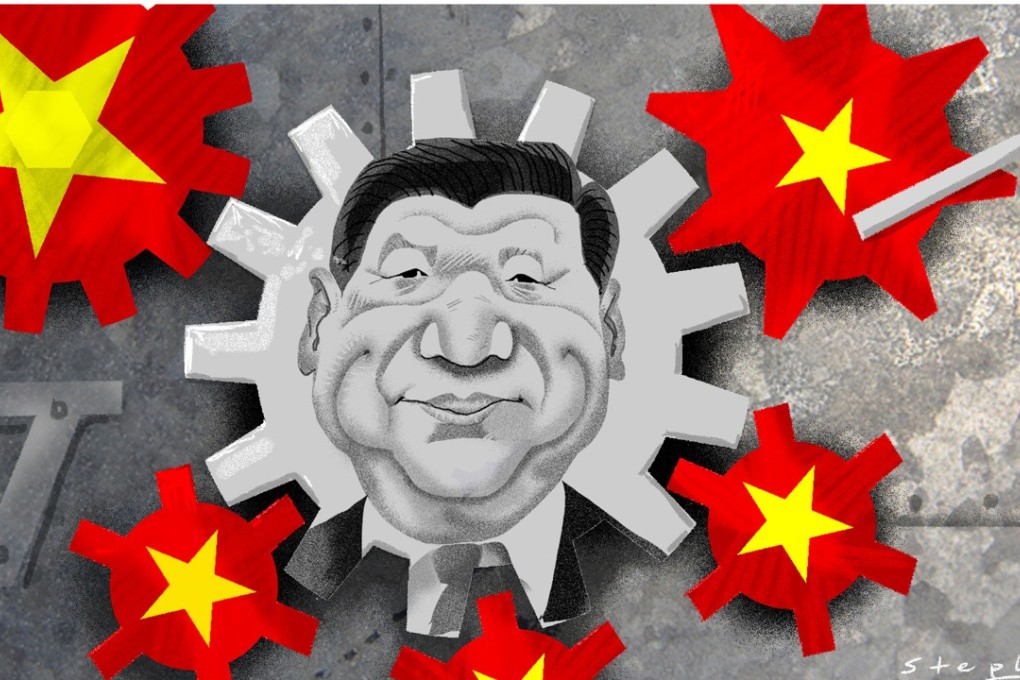Advertisement
China needs Xi Jinping at the helm for at least a decade more to finish his anti-corruption work and build an effective system
Shiu Sin Por says the removal of the term limit on the presidency, enabling Xi Jinping to stay in office indefinitely, will allow him to see through the anti-graft campaign he instituted
Reading Time:4 minutes
Why you can trust SCMP

The Communist Party is set to introduce a number of constitutional amendments at China’s annual parliamentary sessions, including an item removing the term limits of the presidency. This sudden move has led to a flood of outcries inside and outside the country which has resulted in a clampdown on internet discussion by the authorities. The end of presidential term limits has been widely interpreted as Xi Jinping’s attempt to seize more power and hold office for life.
Advertisement
The clause limiting an individual to two presidential terms was a landmark constitutional amendment in 1982 intended to prevent lifelong service in the top echelons of the state apparatus, said to be a major cause of the Cultural Revolution. Following the news that the term limit would be abolished, there were warnings that the imperial system is being reinstated or that another Cultural Revolution is imminent. These insinuations are utterly groundless and unfair. They amount to fearmongering with the intent to sow dissent and disunity.
First, a few facts. There is no term limit for the party’s general secretary and the chairman of the Central Military Commission, the two most powerful positions in the Chinese political structure. Xi currently holds both. The presidency is mainly a ceremonial post. It holds much less weight than the other two posts within the Chinese political system. Xi does not need to make the change to increase his power. He was already declared “core leader” of the party last year. Nor does he need the change to stay in power for life.
The party could have ... [changed] the constitution to limit the terms of the general secretary and the chairman of the military commission. The leaders must have had their reasons for not going this way
The move is clearly intended to ally these three posts under a consistent arrangement. Of course, the party could have dealt with this by changing the party constitution to limit the terms of the general secretary and the chairman of the military commission. The leaders must have had their reasons for not going this way. The point is that the accusations of power grabbing and remaining in power forever are completely groundless as Xi can already stay in power as long as he wants if the party allows him to, without amending the constitution. Besides, the proposed change only involves the presidency and vice-presidency. Other posts’ term limits remain unchanged. The term limit system introduced after the Cultural Revolution to prevent lifelong service in the bureaucracy is still in place.
China, under Xi’s leadership in the past five years, has undergone a purge of corrupt officials. Xi has, firstly, upended the military, then, from the very top to bottom, the party ranks and, more recently, business figures of both state-owned and private companies with ties to corrupt officials. This campaign has shaken up nearly everyone connected with public service. This unprecedented and determined campaign has surprised many. The need for a clean-up is so obvious that many leaders before Xi had proclaimed that the problem, if not effectively dealt with, would mean the end of the Communist Party and the nation. But almost nothing had been done before Xi assumed office. Nobody took Xi seriously in the beginning. That has changed.
This great purge has, on the one hand, seriously destabilised the system. Imagine the wide spectrum of enemies Xi created in the process. But on the other hand, if successful, it will provide a new beginning for the country’s march towards clean and effective government and modernity. Xi enjoys great support and popularity with the people partly because of this.
Advertisement
The question is, then, what would happen if Xi stepped down in five years when the anti-corruption campaign was in its first stages, if not its infancy? The common observation is that for all the hard work of the past five years, the campaign is only in the first of three phases to control, if not eliminate corruption, meaning it has only been successful in instilling fear in those officials and the public who are tempted to engage in corrupt practices. The second phase of “not being able to be corrupt”, and the third of “not wanting to be corrupt” are a long way off.

Advertisement